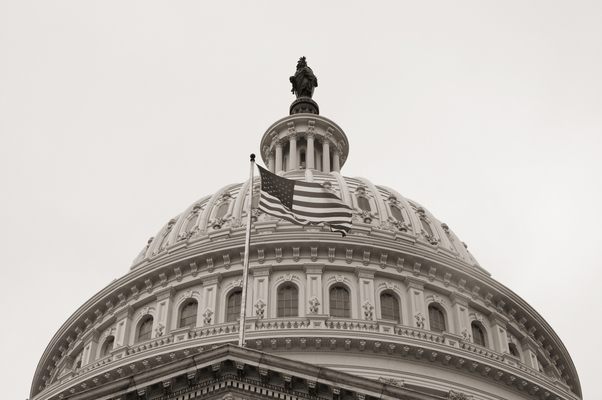In part one of the Fundamentals of Self-Governance series, I pointed out that freedom must be regularly exercised through self-governance lest we lose our capacity for self-governance altogether.
There are a few preconditions for actual self-governance, however. One is limited government. After all, people can only govern themselves so much within a government that makes all of their choices for them.
Citizens for Self-Governance, Convention of States Action’s parent company, explains: “Americans used to govern themselves. When this nation was founded, the government acted only to protect life, liberty and property. Now, it has encroached into every area of life, so we endlessly debate the healthcare, education, and economic policies our so-called leaders hand down to us.”
Some would argue humans have the wherewithal to govern themselves regardless of where they live – whether in a free country like America or under totalitarianism. In some regards, this is true. Nonetheless, it is obviously easier when the government gets out of the way as much as possible.
Ronald Reagan understood this perhaps more than anyone in recent national politics. Reagan’s was a clear voice arguing forcefully for a limited government. In his iconic A Time for Choosing speech, the Great Communicator argued that the great issue of the day was “whether we believe in our capacity for self-government or whether we abandon the American revolution and confess that a little intellectual elite in a far-distant capitol can plan our lives for us better than we can plan them ourselves.”
Years later, he doubled down: “man is not free unless government is limited. There's a clear cause and effect here that is as neat and predictable as a law of physics: As government expands, liberty contracts."
The Founding Fathers understood this too. The American War of Independence was begun not for something as menial as a tax on tea and stamps but for what those taxes represented: Parliament’s usurpation of the people’s power to govern.
A relatively unknown hero of the American Revolution, Levi Preston, encapsulated that line of thinking when he was interviewed by historian Mellen Chamberlain about his service during the war:
“Captain Preston, why did you go to the Concord Fight, the 19th of April, 1775?”
Preston didn’t answer.
Chamberlain pressed, asking if it was because of “the Intolerable Oppressions.”
Preston said he “never felt them.”
Stamp Act? “I never saw one of those stamps,” he responded.
Tea Tax? “I never drank a drop of the stuff,” Preston remembered. “The boys threw it all overboard.”
Maybe it was the words of Harrington, Sydney or Locke, Chamberlain probed.
“Never heard of ‘em,” was the captain’s reply.
Chamberlain persisted, “Well, then, what was the matter? And what did you mean in going to the fight?”
“Young man,” the old soldier said, “what we meant in going for those red-coats was this: we always had governed ourselves, and we always meant to. They didn’t mean we should.”
“And that, gentlemen,” Chamberlain resolved, “is the ultimate philosophy of the American Revolution.”
That “ultimate philosophy of the American Revolution” was the same philosophy that guided Reagan and the same philosophy that must guide us today. It is the philosophy that says government exists to protect our rights but must never restrict our ability to freely exercise them. It is the philosophy that has, regrettably, been rejected by the modern political establishment.
The single best thing we can do to bring back the limited government the Founders fought for and Reagan dreamed about is to call an Article V Convention of States.
Far from being limited, the government has trampled our rights. Between sweeping mandates and inescapable regulations, Washington is making as many of our choices as it possibly can. But through a Convention of States, we can bring power back to the states and people and recreate a culture in which self-government thrives.
To show your support, sign the Convention of States petition below!


